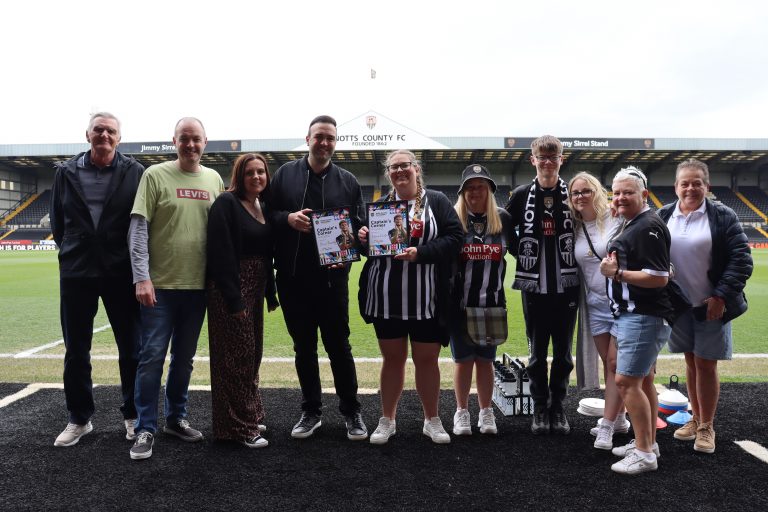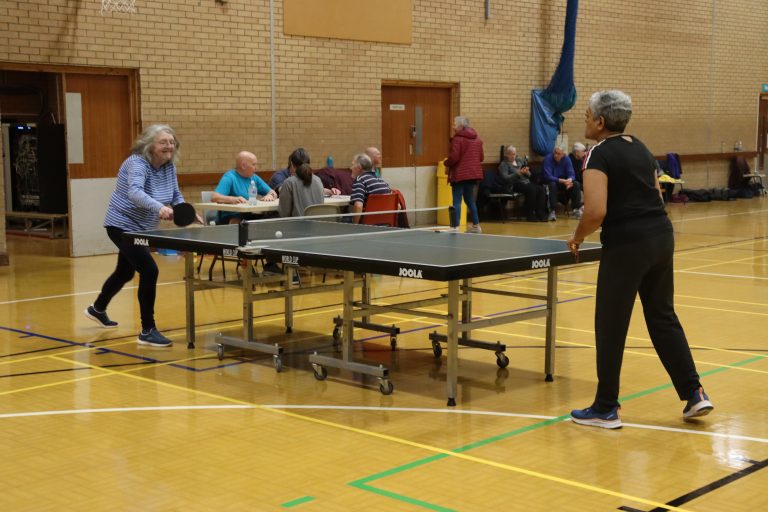This week we’re shining a light on the amazing work carried out in our Goals for Life Project, a life changing project that combines physical activity, peer support and workshops to improve the well-being of young people aged 11-18 years.
The challenge
Nearly a decade ago, Children in Need approached Notts County Foundation to develop a new initiative working with children and young people.
Our Response
Goals for Life was originally focused on how football could improve boy’s behaviour at school. However, this soon changed as it became apparent that more young people could benefit from a wider scope.
Today, the project aims to improve self-esteem and self-confidence, improve peer relationships and increase positive empowerment. It’s delivered in schools, youth clubs, young people’s mental health services and through the National Citizens Service and excluded school provisions.
“Goals for Life is no longer geared just to boys – today it’s open to all young people aged 10-18 who might have mental health challenges,” says the Foundation’s mental health specialist Dr Nigel Plant..
“I think more people are now aware of how mental health can affect the behaviour of young people. Notts County Foundation engage young people using physical activity and a person-centred approach to understand their needs. Interactive workshops are co-produced with the group to achieve their individual and group goals.”
The team behind Goals for Life understood that to engage young people, they had to make sure attendees felt the sessions were truly ‘theirs’.
“It’s really important that each programme we run is developed with the group,” says Nigel. “It’s not just something we roll out to everybody. We actively design the programme with them.”
This always starts with a simple exercise where young people anonymously share their hopes and fears with the group. They can then discuss what they want from the sessions, and later give their feedback on how they’re progressing.
“The group might decide that they don’t want to do any sport,” says Mental Health coordinator Claire Wilmott.
“So we might go for a walk and talk about how we feel at the end of it. Or do a team-building exercise where we build something together. It’s all about learning skills for the future.”
Nigel insists that this approach doesn’t just help engage young people. It’s part of the process of supporting their mental health.
“It’s bigger than that,” he says.
“We often work with young people who have low self-esteem. Handing over the sessions to them is an important process in building their self-confidence. It means they have to talk and build relationships. Then they find a sense of belonging and may start to realise they’re not the only person to go through this.”
The results
Claire says that the sessions often inspire groups to get involved in different activities they might not have tried before.
“So you might get a group who don’t necessarily participate in P.E.” she says.
“And that’s fine – they can have a bit of a ‘social’. But slowly you introduce an activity and they start engaging in it and socialising together. In one session, the group played croquet for example. Getting involved actively improves their self-worth.”
Of the young people who attended the programme, 90 percent said their self-esteem improved, 80 per cent felt more confident interacting with their peers and 62 per cent felt they could talk more comfortably with others about themselves.
You can read the full project report here.
To find out more about this project and how to get involved please go to our project page here: https://www.nottscountyfoundation.org.uk/programme/goals-for-life/



